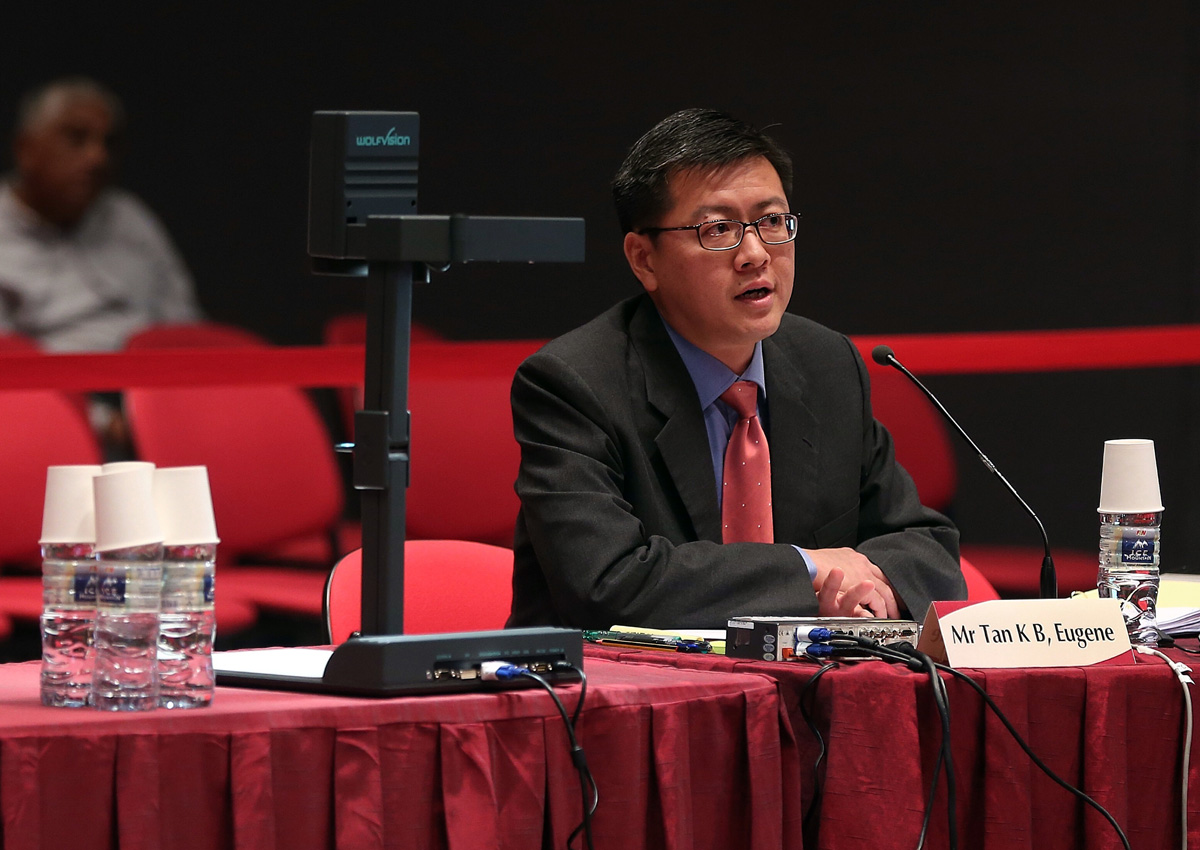The issue of race dominated the first public hearing of the Constitutional Commission to review the elected presidency yesterday.
The people who gave their views agreed Singapore should have a minority-race president from time to time to reflect its status as a multiracial society.
But they differed on how to achieve this outcome, and proposed a variety of solutions.
Singapore Management University law don Eugene Tan, 46, said that installing a legal framework to ensure a minority president would undermine the president’s legitimacy and amount to affirmative action, which he said “is not in our DNA”.
“Maybe I’m idealistic, I’m just very uncomfortable with institution design that engineers certain outcomes,” he added. Instead, candidates should be required to show a track record of championing multiracialism, he said.
Associate Professor Tan also suggested candidates must garner a specified percentage of minority votes to win the presidential election. Ballots can be colour-coded according to the voter’s race, he said, but conceded such a system may compromise voting secrecy.
The Association of Women for Action and Research, represented by its officials Corinna Lim and Jolene Tan, also did not favour measures to ensure the election of a minority president.
Ms Lim argued that the eligibility criteria to run for the office should be made less stringent, so that a bigger pool of people would qualify and naturally include more people of minority races and women as well.
The other four individuals who appeared before the commission suggested specific courses of action.
Institute of Policy Studies senior research fellow Mathew Mathews, 41, said if Singapore did not have a minority president for a number of terms, the next election should be reserved for minority candidates.
Chief Justice Sundaresh Menon, who chairs the commission, said the provision had a “natural sunset” as it would not be invoked if Singapore progressed towards a race-blind society and elected a minority president of its own accord.
Dr Mathews acknowledged some might criticise the move as tokenism, but pointed out that it was up to the minority president to win people over by doing a good job.
In-house legal officer Edwin Yeo, 42, proposed what he called a hybrid system that combined aspects of appointing and electing a president.
A presidential council could be set up to identify one candidate in consultation with the prime minister.
The candidate must then be approved by Parliament and face a nationwide election, in which Singaporeans would simply vote “yes” or “no” on the ballot. Such a framework allows the presidential council to put up a minority candidate, who, if elected, will have the people’s mandate to fulfil his custodial role.
It also avoids the divisiveness of pitting candidates against one another, which Mr Yeo said happened in the 2011 Presidential Election.
But a commission member, Justice Tay Yong Kwang, said the process could repeat indefinitely should a candidate fail to get elected. “It’s going to be very wearisome for the public. They will go, ‘Oh no, another election? This is the 10th time’,” he said to illustrate his point.
Academic Loke Hoe Yeong, 31, and law firm intern Brian Chang, 26, suggested a two-person ticket in which one of the candidates would have to be from a minority race.
Mr Loke said the second candidate could become the Speaker of Parliament, while Mr Chang said he or she could be chairman of the Council of Presidential Advisers.

This article was first published on April 19, 2016.
Get a copy of The Straits Times or go to straitstimes.com for more stories.






